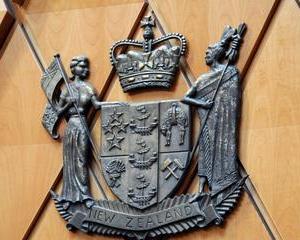Planned regional water entities may be too large and powerful and contentious water reforms may need a reset to get them back on track, Dunedin councillors may tell the Government.
They appear likely to argue the proposed establishment of four water services entities — which would take over work done by councils, and their assets — is premature.
Alternative models should be looked at, they may suggest.
Dunedin city councillors are set to resume discussions tomorrow about what feedback they should give Minister of Local Government Nanaia Mahuta about her proposed reforms of drinking water, wastewater and stormwater.
Dunedin Mayor Aaron Hawkins cut a council meeting short last week when it appeared wholesale amendments to a draft letter to Ms Mahuta would be difficult to manage.
The adjusted draft arrived at since is more strongly worded.
"You have asked us to be ambassadors for these reforms in our communities, but at this stage this is not a role we feel able to perform," the revised draft says.
"The programme has advanced too far, too fast, without sufficient involvement from local government."
Concern was expressed in the first draft about the possibility of the reforms creating a situation in which the costs of putting pipes in the ground or upgrading treatment plants dictated where and how an urban area grew.
"The council is gravely concerned that a water services entity with a geographical footprint much larger than the local communities it services will exert an investment power over councils’ ability to plan for future land use," the revised draft says.
The council appears to concede there is a case for reform.
However, it has been critical of the Government’s timeframes, arguing they do not allow for meaningful dialogue with communities.
The Government has argued many communities will struggle to afford the investment needed to maintain and upgrade their systems unless there is reform.
Setting up regional water entities should create substantial efficiencies through economies of scale and help to keep rising capital costs in check, it has stressed.
"We’re taking a long-term view, building a system that will deliver better health and wellbeing outcomes for our communities and that protects our environment for generations to come," the Government says in its promotional material.
However, the magnitude of efficiency gains has been hotly contested.
The Government’s advertising campaigns about the reforms were "designed to scare rather than provide balanced information", the revised draft letter states.
Assumed financial benefits from the proposed new model had been "overstated".
The Government appointed the Water Industry Commission for Scotland to provide analysis that underpinned the reform proposals.
Assumptions the commission made for Dunedin were "applied unevenly and are both inaccurate and inflammatory", the city council’s draft letter says.
Comments
The 3waters plan will almost certainly fail. Its centralusation straight out of the communists handbook (healths getting the same model). This government has failed with every project theyve started so why will this be any different? Problem is councils, including the dcc have incompetent power-hungry middle managers that create this issue over successive years of fumbling, ego and buttcovering.
Correct, we are in this position nationally after years and years of balancing the books by either putting off maintenance and infrastructure investment or raising rates. My question is, where has the money gone? Managers annual bonuses or pay rises? This is one fight the "communists" will probably win, as more of the same will not cut it.












